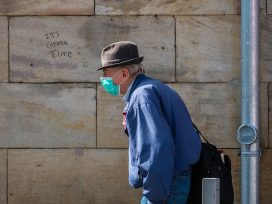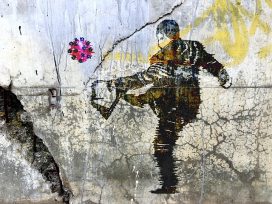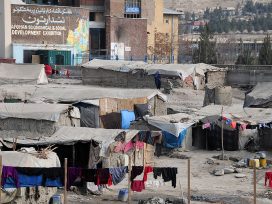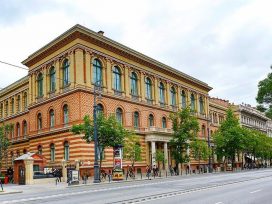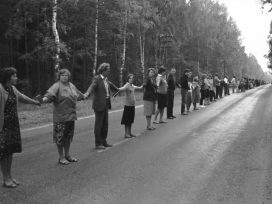Powerless Ukraine
Amidst the geopolitics, Ukraine lacks a sense of agency, observe two leading journalists of the Euromaidan generation. But cultivating confidence is difficult when journalism itself seems to have lost its bearings.
As the rest of the world discusses Ukraine’s fate, the country itself lacks a sense of agency, says Kariakina. Eight years after Euromaidan, trust in the state remains weak. And despite bans on Russian TV and social media, anti-Ukrainian propaganda still gets through. ‘How’, she asks, ‘do we show we’re an interdependent society that lives in an interdependent world?’
Nataliya Gumenyuk shares the feeling of powerlessness. When covering the invasion of Crimea and the war in Donbas, what motivated the journalist was her conviction that ‘no matter what the Kremlin wants to happen, there are still things that depend on us’.
Now that geopolitics rules the day, that conviction is gone. Or rather, it is in suspension: ‘If the talks fail to achieve something, it’s the people, the residents of Ukrainian towns, the Ukrainian military, who will pay the price. It’ll be their suffering we need to document. And our job will have some meaning again.’
One can only hope it doesn’t come to that; that peace prevails. And that journalism in Ukraine can nevertheless find a vocation in what Kariakina describes as ‘engaging people in genuine, trustworthy dialogue’.
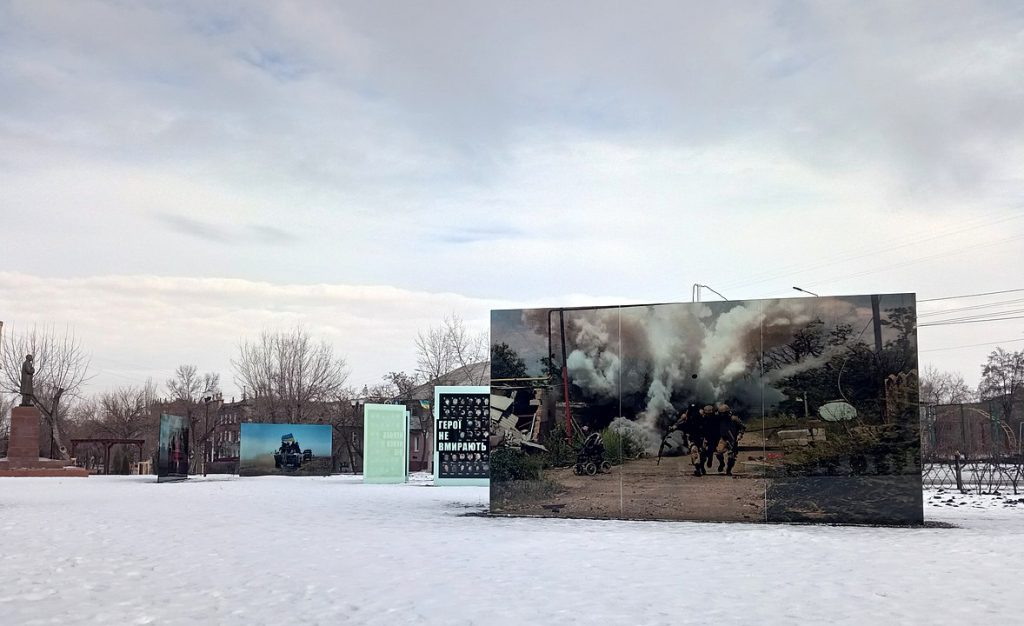
Installation commemorating pro-Ukrainian forces in Severodonetsk. Photo by NikolaSkuridin, CC BY-SA 4.0, via Wikimedia Commons
Distrust in authority is the fundamental reason for low vaccination rates across eastern Europe, argues Péter Krekó in conversation with Réka Kinga Papp.
But we shouldn’t think of anti-science as the expression of mere ignorance, nor primarily as a grass-roots movement, he says. In fact, anti-science has more to do with political affiliation than with education. Beating it requires providing people with critical skills – one of which is knowing when to listen.
Anyone who doesn’t follow German Twitter closely may not have noticed the controversy towards the end of last year around an article by Jürgen Habermas published by Eurozine partner Blätter für deutsche und internationale Politik.
In it, Habermas not only defended the legitimacy of temporary restrictions on individual rights in connection with lockdown measures, but also argued that the German government had not fully carried out its constitutional mandate to prevent ‘the probable endangerment of the life and physical integrity of a foreseeable number of innocent citizens’.
Despite hyperbole about ‘the Habermas dictatorship’ and tendentious comparisons with China, the liberal-libertarian reaction had some valid points. Particularly pertinent was the objection that, in legalizing the argument, Habermas had placed critics of Germany’s lockdown outside the constitutional spectrum.
Political theorist Peter Verovšek inspects the arguments – which are broadly relevant beyond the specifics of the German context – and argues that Habermas’s position, far from evidencing late-career authoritarianism, is consistent with his theory of the democratic public sphere.
This editorial is part of our 3/2022 newsletter. Subscribe to get the weekly updates about our latest publications and reviews of our partner journals.
Published 16 February 2022
Original in English
First published by Eurozine
© Simon Garnett / Eurozine
PDF/PRINTIn collaboration with
In focal points
Newsletter
Subscribe to know what’s worth thinking about.
Related Articles
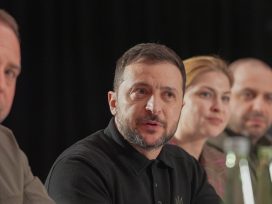
The ‘Trump–Putin deal’ again places Ukrainians in a subaltern role. The leaked contract with its fantasy $500 billion ‘payback’ has been compared to Versailles, but the US betrayal recalls nothing so much as Molotov–Ribbentrop.

Ukraine faces its greatest diplomatic challenge yet, as the Trump administration succumbs to disinformation and blames them for the Russian aggression. How can they navigate the storm?


